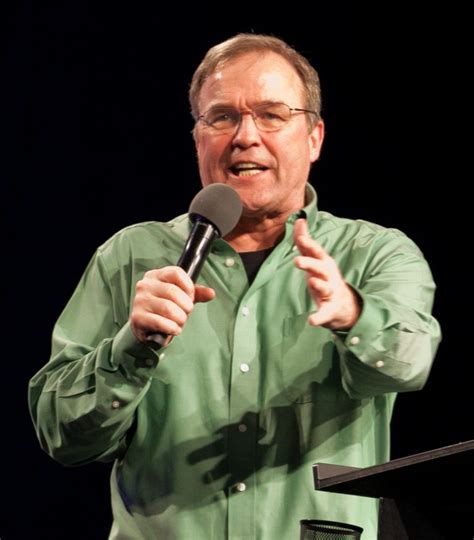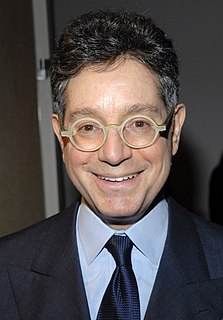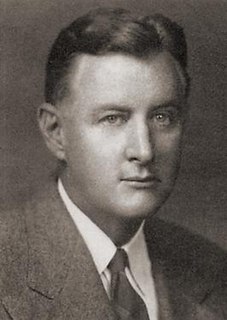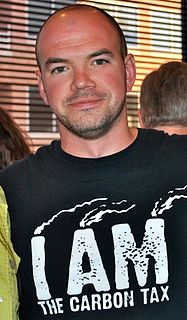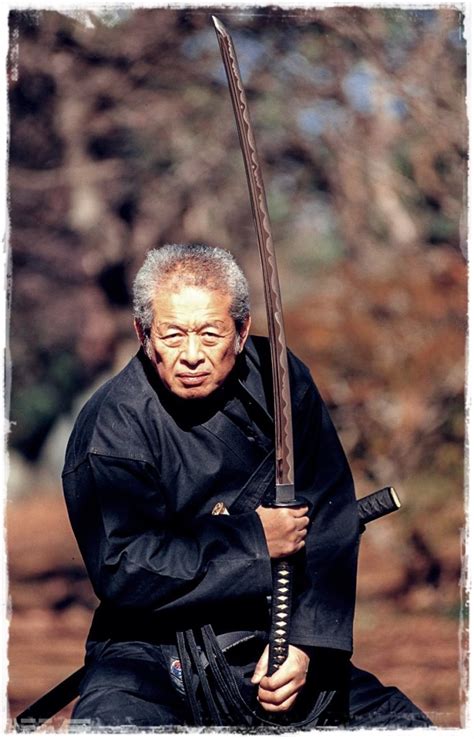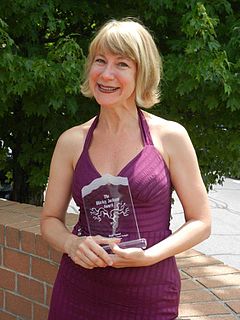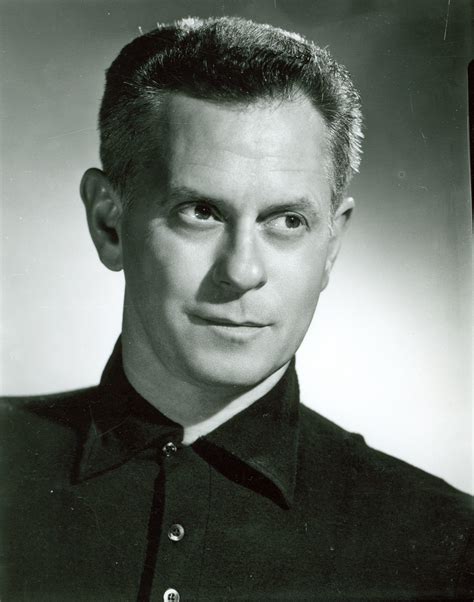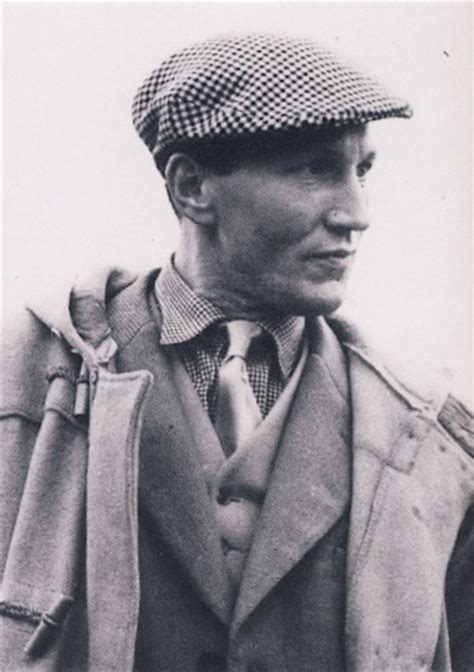Top 1200 Bowel Movements Quotes & Sayings - Page 19
Explore popular Bowel Movements quotes.
Last updated on November 15, 2024.
In most sports, your brain and your body will cooperate... But in rock climbing, it is the other way around. Your brain doesn't see the point in climbing upwards. Your brain will tell you to keep as low as possible, to cling to the wall and not get any higher. You have to have your brain persuading your body to do the right movements.
Given for one instant an intelligence which could comprehend all the forces by which nature is animated and the respective positions of the beings which compose it, if moreover this intelligence were vast enough to submit these data to analysis, it would embrace in the same formula both the movements of the largest bodies in the universe and those of the lightest atom; to it nothing would be uncertain, and the future as the past would be present to its eye.
Poetry interprets in two ways: it interprets by expressing, with magical felicity, the physiognomy and movements of the outward world; and it interprets by expressing, with inspired conviction, the ideas and laws of the inward world of man's moral and spiritual nature. In other words, poetry is interpretative both by having natural magic in it, and by having moral profundity.
Spirit is not a mystic concept. The spirit of a person is manifest in her aliveness, brightness of his eyes, in the resonance of her voice and in the ease and gracefulness of his movements. These qualities are related to and stem from a high level of energy in the body... Sensing the harmony between the internal pulsation of our body and that in the universe, we feel identified with the universal, with God. We are like tuning forks vibrating at the same pitch
I like to make my voice sound like a piece of tin that's been stuck on the side of a chair, lifted up as far as it would go and then let to spring - "doooiiinng." I like to make it into a piece of metal from time to time and I can do it, both with the movements in my throat and with, uh, my little toys... So I like to take it beyond just a voice, more into the realms of a weapon.
The gay rights movement of recent years has been an inspiring victory for humanity and it is in the tradition of the civil rights movement when I was a young boy in the South, the women's suffrage movement when my mother was a young woman in Tennessee, the abolition movement much farther back, and the anti-apartheid movement when I was in the House of Representatives. All of these movements have one thing in common: the opposition to progress was rooted in an outdated understanding of morality.
The idea of self-determination was gradually given credibility by international law, and it lent strong emancipatory support to movements of liberation struggling against a West-centric world order. Latin American countries used international law creatively, both to limit the protection of foreign investment by establishing the primacy of national sovereignty in relation to natural resources, and by building support for the norm on non-intervention in internal affairs.
Classical is a more refined and structured dance form. Folk is made for celebration. That's not a very competitive dance form. Though you can bring classical on stage, folk becomes limited. Like you would love to do bhangra and garba at parties, but when you see it on stage, it is very limited in terms of movements.
Allegiance to Jesus and loving the truth are primary truths (2Thessalonians 2 v10). The Body of Christ must tolerate all religions in the sense of greatly valuing the dignity of their people and religious liberties. They possess great dignity before God. Yet, we are not willing to let them go to hell by refusing to love them and tell them the truth about Jesus. A false application of tolerance is foundational in the movements that lead to the harlot religion.
With the internet we are facing more or less a very similar story. It does offer virtually limitless access to entertainment and for many people living in extremely depressing conditions in authoritarian states, it does provide a vehicle for getting by. For many oppositional movements, the internet, while providing the opportunity to distribute information more quickly and cheaper, may have actually made their struggle more difficult in the long run.
If history is to be creative, to anticipate a possible future without denying the past, it should, I believe, emphasize new possibilities by disclosing those hidden episodes of the past when, even if in brief flashes, people showed their ability to resist, to join together, occasionally to win. I am supposing, or perhaps only hoping, that our future may be found in the past's fugitive movements of compassion rather than in its solid centuries of warfare.
It has unfortunately now become a habit for so many generations, that it has almost passed into an instinct throughout the Jewish body, to rely upon the weapon of secrecy. Secret societies, a language kept as far as possible secret, the use of false names in order to hide secret movements, secret relations between various parts of the Jewish body: all these and other forms of secrecy have become the national method.
I started getting really curious about art. I read about the Dadaists and the Futurists and the Constructivists - those kind of movements which were reflecting the angst of the people of their times. Their work was trying to lead a movement. I began thinking about what was happening, with painting on the streets and painting on the trains as being similar but also coming from a real, pure space. It wasn't being created by academies. It was a spontaneous combustion of ideas that just happened.
The church has contributed nothing to civilization. It has progressed somewhat, and it has become a little more decent, in reflection of the movements of civilization that have taken place outside of the church and usually in the face of the strong opposition of the church. But the church has always resisted the process of civilization. It has struggled to the last ditch, by fair means and foul, to preserve as long as it could the vestiges of ancient and medieval theology, with all the puerile moralities and harsh customs and medieval styles of belief.
The blind spot for the in the Southern Progressive Movement - as for that matter in the national [progressive] movement - was the Negro, for the whole movement in the South coincided paradoxically with the crest of the wave of racism. Still more important to the association of the two movements was the fact that their leaders were often identical. In fact, the typical Progressive reformer rode to power in the South on a disenfranchising or white-supremacy movement.
The lessons we have begun to learn make me hopeful, that human beings will become friendlier, more harmonious, less harmful. Compassion and the seeds of peace will be able to flourish. At the same time, every individual is responsible to help guide our global family in the right direction. Good wishes alone are not enough; we have to take responsibility. Large human movements spring from individual human initiatives
The west has decided to channel money and effort into studying other customs and practices, but no one has really given other people the chance to study western customs and practices, except at schools maintained by white expatriates, or by allowing the rich from other cultures to study in Oxford or Paris. What happens then is that they return home to organise fundamentalist movements, because they feel solidarity with those of their compatriots who lack the opportunity for such education.
I did enjoy singing the song, called "The Count", which is Count Olaf's big song that he sings to the kids when they first arrive with his henchpeople. He wrote it himself, and he thinks he's really, really talented, and it's a terrible song. So we had to learn intentionally bad choreography... We did these almost Lady Gaga-ish kind of movements, which were just awful, but that made me laugh
If you look back to the anti-intervention movements, what were they? Let's take the Vietnam War - the biggest crime since the Second World War. You couldn't be opposed to the war for years. The mainstream liberal intellectuals were enthusiastically in support of the war. In Boston, a liberal city where I was, we literally couldn't have a public demonstration without it being violently broken up, with the liberal press applauding, until late 1966.
The razor-sharp line of division that exists between political ideologies in our own country in the United States, I think it's clear that these movements are forming - and one is more forward thinking and more embracing and more inclusive. The other is less tolerant and more judgemental and more fear-driven and fear-based. I think, you know, over the next generation, we're going to see which way we turn as a civilisation.
For myself the delay [in assuming the office of the President] may be compared with a reprieve; for in confidence I assure you, with the world it would obtain little credit that my movements to the chair of Government will be accompanied by feelings not unlike those of a culprit who is going to the place of his execution: so unwilling am I, in the evening of a life nearly consumed in public cares, to quit a peaceful abode for an Ocean of difficulties, without that competency of political skill, abilities and inclination which is necessary to manage the helm.
Most people's lives are run by desire and fear. Desire is the need to add something to yourself in order to be yourself more fully. All fear is the fear of losing something and thereby becoming diminished and being less. These two movements obscure the fact that Being cannot be given or taken away. Being in its fullness is already within you, Now.
The hegemony of finance and the banks has produced the indebted. Control over information and communication networks has created the mediatized. The security regime and the generalized state of exception have constructed a figure prey to fear and yearning for protection—the securitized. And the corruption of democracy has forged a strange, depoliticized figure, the represented. These subjective figures constitute the social terrain on which—and against which—movements of resistance and rebellion must act.
Spirituality has to play an important role, particularly in resistance movements. The institutions we are fighting against - corporations and governments - use alienation as one of their primary weapons. A big part of their messaging is intended to make people feel separated from each other, which disempowers them, which makes them ever easier to exploit. This is really a spiritual weapon they are using. It isolates people and breaks their spirit.
When properly applied, the kamae reflects the ninja's heart.
This means that our physical nature conforms to our intentions,
and there is no division between our interior and exterior
aspects. This state of integrated mind and body action is
totally natural, and can be observed readily in the movements
of animals as they interact with their environment. Only human
beings seem to develop the need to be trained in natural body
motion.
Until educators, individuals, artists, intellectuals and various social movements address how the metaphysics of casino capitalism, war and violence have taken hold on American society (and in other parts of the world) along with the savage social costs they have enacted, the forms of social, political, and economic violence that young people are protesting against, as well as the violence waged in response to their protests, will become impossible to recognize and act on.
The human species is now at a point where it has to make choices that are going to determine whether decent survival is even possible. Environmental catastrophe, including war, maybe pandemics, these are very serious issues and they can't be addressed within the current structure of institutions. That's almost given. There have to be real significant changes, and only really effective popular mass-based movements can introduce and carry forward such initiatives, as indeed did happen during the 1930s.
Horror hostess, bondage goddess, Charles Addams cartoon comes to life, Vampire was every first-generation fanboy's wet dream. Scott Poole takes us on an unforgettable ride through the overlapping underworlds of B&D magazines, Hollywood noir, and early political liberation movements that inspired actress Maila Nurmi to challenge a postwar culture bent on stifling women's choices, bodies, and desires. This book is a subversive masterpiece.
It is a sad hardship and slavery to people who live in towns, that in their movements they know of one dimension only; they walk along the line as if they were led on a string. The transition from the line to the plane into the two dimensions, when you wander across a field or through a wood, is a splendid liberation to the slaves, like the French Revolution. But in the air you are taken into the full freedom of the three dimensions; after long ages of exile and dreams the homesick heart throws itself into the arms of space.
Globalization has considerably accelerated in recent years following the dizzying expansion of communications and transport and the equally stupefying transnational mergers of capital. We must not confuse globalization with "internationalism" though. We know that the human condition is universal, that we share similar passions, fears, needs and dreams, but this has nothing to do with the "rubbing out" of national borders as a result of unrestricted capital movements. One thing is the free movement of peoples, the other of money.
[I have seen] workers in whom certain morbid affections gradually arise from some particular posture of the limbs or unnatural movements of the body called for while they work. Such are the workers who all day stand or sit, stoop or are bent double, who run or ride or exercise their bodies in all sorts of [excess] ways. ... the harvest of diseases reaped by certain workers ... [from] irregular motions in unnatural postures of the body.
I traveled for seven years, and when I came back home I was completely lost. I didn't know what to do with my life, so I decided to let people decide for me. For month I followed strangers on the street. For the pleasure of following, not because the party interested me. I photographed them without their knowledge, took note of their movements, and finally lost sight of them. At the end of January 1980, I chose a man and followed him to Venice. That's how I started. That's all.
To prove that Wall Street is an early omen of movements still to come in GNP, commentators quote economic studies alleging that market downturns predicted four out of the last five recessions. That is an understatement. Wall Street indexes predicted nine out of the last five recessions! And its mistakes were beauties.
Nearly everybody nowadays accepts the 'causal completeness of physics' - every physical event (or at least its probability) has a full physical cause. This leaves no room for non-physical things to make a causal difference to physical effects. But it would be absurd to deny that thoughts and feelings (and population movements and economic depressions . . .) cause physical effects. So they must be physical things.
These fellow-mortals, every one, must be accepted as they are: you can neither straighten their noses, nor brighten their wit, nor rectify their dispositions; and it is these people-amongst whom your life is passed-that it is needful you should tolerate, pity, and love: it is these more or less ugly, stupid, inconsistent people whose movements of goodness you should be able to admire-for whom you should cherish all possible hopes, all possible patience.
Close reading of tough-minded writing is still the best, cheapest, and quickest method known for learning to think for yourself... Reading, and rigorous discussion of that reading in a way that obliges you to formulate a position and support it against objections, is an operational definition of education... reading, analysis, and discussion is the way we develop reliable judgment, the principle way we come to penetrate covert movements behind the facade of public appearances.
Today, we are tabling a motion seeking the support of the House for the Government's decision to renew our military mission against ISIL for up to an additional 12 months. Our objectives remain the same: we intend to continue to degrade the capabilities of ISIL, that is, to degrade its ability to engage in military movements of scale, to operate bases in the open, to expand its presence in the region, and to propagate attacks outside the region.
Laplace considers astronomy a science of observation, because we can only observe the movements of the planets; we cannot reach them, indeed, to alter their course and to experiment with them. "On earth," said Laplace, "we make phenomena vary by experiments; in the sky, we carefully define all the phenomena presented to us by celestial motion." Certain physicians call medicine a science of observations, because they wrongly think that experimentation is inapplicable to it.
Well, you know, I do think in the larger span of things, I owe it all to Star Trek, because Star Trek has given me this pop icon status if you will, and one of the gifts have been this megaphone I have which amplifies my voice and I can reach people. And I do think the movement for equality for LGBT Americans is in the same context of all of the great American movements, you know, the basic fundamental ideals of this country of justice and equality.
We need a more widely shared burden on the part of society to keep asking, "What are our collective values, what kind of world do we want to bequeath to our children, and to what extent are these particular technological developments helping us go in those directions? I think that corporations, every bit as much as governments, social movements, and universities - we all have a role to play in asking those questions. I don't think anybody should have a monopoly on that responsibility.
No power but Congress can declare war; but what is the value of this constitutional provision, if the President of his own authority may make such military movements as must bring on war? ... [T]hese remarks originate purely in a desire to maintain the powers of government as they are established by the Constitution between the different departments, and hope that, whether we have conquests or no conquests, war or no war, peace or no peace, we shall yet preserve, in its integrity and strength, the Constitution of the United States.
But it certainly is a wonderful thing to wake up suddenly in the solitude of the woods and look up at the sky and see the utter nonsense of everything including all the solemn stuff given out by professional asses about the spiritual life; and simply to burst out laughing, and laugh and laugh, with the sky and the trees because God is not in words, and not in systems, and not in liturgical movements, and not in "contemplation" with a big "C," or in asceticism or in anything like that, not even in the apostolate.
The poet Amanda Nadelberg puts it nicely in an interview when she says "often what I listen for in poems is a sense that the writer is a little lost, not deliberately withholding information or turning on the heavy mystery machines, but honestly confounded - by the world? isn't it so? - and letting others listen in on that figuring." That's what engages me - the mind in motion, the drama of someone in the process of thinking - and it's the elusive mystery of those movements that I hope to capture in my essays.
Investors, of course, can, by their own behavior make stock ownership highly risky. And many do. Active trading, attempts to "time" market movements, inadequate diversification, the payment of high and unnecessary fees to managers and advisors, and the use of borrowed money can destroy the decent returns that a life-long owner of equities would otherwise enjoy. Indeed, borrowed money has no place in the investor's tool kit.
Even in a minute instance, it is best to look first to the main tendencies of Nature. A particular flower may not be dead in early winter, but the flowers are dying; a particular pebble may never be wetted with the tide, but the tide is coming in. To the scientific eye all human history is a series of collective movements, destructions or migrations, like the massacre of flies in winter or the return of birds in spring.
Social movements throughout history take place in people's minds. If we got 5,000 Americans who were talking about climate change to their neighbors and to their coworkers, and talking about this pledge, that would change the political and social landscape so much more than if 5,000 people got arrested for protesting a pipeline.
The most powerful words in English are 'Tell me a story,' words that are intimately related to the complexity of history, the origins of language, the continuity of the species, the taproot of our humanity, our singularity, and art itself. I was born into the century in which novels lost their stories, poems their rhymes, paintings their form, and music its beauty, but that does not mean I had to like that trend or go along with it. I fight against these movements with every book I write.
The basic project of art is always to make the world whole and comprehensible, to restore it to us in all its glory and its occasional nastiness, not through argument but through feeling, and then to close the gap between you and everything that is not you, and in this way pass from feeling to meaning. It's not something that committees can do. It's not a task achieved by groups or by movements. It's done by individuals, each person mediating in some way between a sense of history and an experience of the world.
Making clothes involves what I like...color, pattern, shape and movement...I like the everyday process...the people, the pressure, the surprise of seeing the work come alive walking and dancing around on strangers. Like red lipstick on the mouth, my products wake up and brighten and bring the wearer to life...drawing attention to her beauty and specialness...her moods and movements...her dreams and fantasies.
I believe that movements start when individuals who feel very isolated and very alone in the midst of an alien culture, come in touch with something life-giving in the midst of a death-dealing situation. They make one of the most basic decisions a human being can make, which I have come to call the decision to live "divided no more," the decision to no longer act differently on the outside than one knows one's truth to be on the inside
Before the change of regime in 1989, you couldn't talk about anti-Semitism, and after the regime change, people started to talk about taboo subjects. I was 8 years old in those days, and later, in politics and society, these extreme wright ideologies got stronger - the skinhead movement was started, a lot of ex-Nazis emigrated and financially supported these extreme right movements in Hungary.
You have to join every other movement for the freedom of people. Therefore join the movement as individuals against anti-Semitism, join the movements for the rights of Hispanics, the rights of women, the rights of gays. In other words, I think that each movement has to stand on its own feet because it has a particular agenda, but it can ask other people.
I am sincerely trying now to create a dance technique based entirely upon corrective exercises, created with a knowledge of human anatomy; a technique which will correct physical faults and prepare a dancer for any type of dancing he may wish to follow; a technique having all the basic movements which govern the actions of the body; combined with a knowledge of the origin of movement and a sense of artistic design.
... regard this body as a machine which, having been made by the hand of God, is incomparably better ordered than any machine that can be devised by man, and contains in itself movements more wonderful than those in any machine. ... it is for all practical purposes impossible for a machine to have enough organs to make it act in all the contingencies of life in the way in which our reason makes us act.
Man with all his noble qualities, with sympathy which feels for the most debased, with benevolence which extends not only to other men but to the humblest living creature, with his god-like intellect which has penetrated into the movements and constitution of the solar system- with all these exalted powers- Man still bears in his bodily frame the indelible stamp of his lowly origin.
Training is principally an act of faith. The athlete must believe in its efficacy; he must believe that through training he will become fitter and stronger; that by constant repetition of the same movements he will become more skilful and his muscles more relaxed...He must be a fanatic for hard work and enthusiastic enough to enjoy it.
We can no longer contemplate the subject - self - of contemporary art; it has been woven into infinite relationships, replaced by social movements, national image, and financial capital. The disappearance of the construction of the self of contemporary art makes it impossible to exist in the form of a subject. The subject of contemporary art that I speak of is a kind of naming event predicated upon the multiplicity of the environment. It includes politics, should have its own way of thinking, and can be perceived.
In fact, when the fires of empire get hidden, they still stay burning underneath the moss, seething away. This is true with a lot of the countries with really difficult, impenetrable nationalist movements - countries that once had a big empire, like Turkey, England, or even in Italy, with the fascists in the middle of the last century. People who had empires, unfortunately, want them back eventually, somehow, someway.
Rare almost as great poets, rarer, perhaps, than veritable saints and martyrs; are consummate men of business. A man, to be excellent in this way, requires a great knowledge of character, with that exquisite tact which feels unerringly the right moment when to act. A discreet rapidity must pervade all the movements of his thought and action. He must be singularly free from vanity, and is generally found to be an enthusiast who has the art to conceal his enthusiasm.








